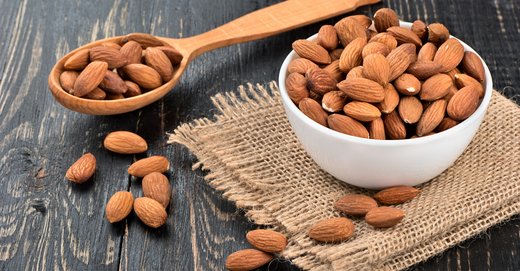If you've found Keto Hana then you probably already know the answer to this question. BUT there is a lot of misleading or outright incorrect information cluttering the internet so we've done our best to lay down some of the basics here.
Danger Carbs
A body fed a carbohydrate heavy diet will rely on blood glucose to provide its energy. This is the metabolic state known as glycolysis and is the norm if you follow a typical western diet. If you eat pasta, rice, potatoes, refined sugars then your body will depend entirely on sugar for its energy. Ketosis is the contrasting metabolic state in which the body relies on short chain fats produced in the liver known as ketone bodies, for energy. The gold standard ketone is known as beta-hydroxybutyrate.
The symptoms of a carbohydrate rich diet that the majority of people put up with every day (fluctuating energy levels, inflammation, not having a six pack) can be eliminated with a ketogenic diet. The aim of the ketogenic diet is to encourage the production of ketones in the liver and ultimately to facilitate a shift in metabolism such that the body relies on fats for energy rather than carbohydrates. This wonderful process is known as fat adaptation.
Why go fully keto?
The benefits of long term ketosis are not restricted to feeling and looking amazing. There is a wealth of data on the ketogenic diet stretching back decades as the medical community has been prescribing the diet to control and eliminate epileptic seizures in drug resistant patients. Studies have demonstrated anti-inflammatory, neuroprotective and anti-cancerous effects, and physical and cognitive performance enhancing qualities. Let's break that down a bit: inflammation is thought to be one of the biggest influencers in ageing. Neurodegenerative diseases (Parkinsons, Alzheimer's, etc) are one of a small group of things most likely to kill you if you've made it to forty (well done, by the way), another being cancer. Combine all that with a mental and physical edge over the rest of the world and it’s starting to look like we've found the cheat code to life.
Getting into ketosis
Blood ketone levels of 0.5 millimolar or above are generally the minimum considered necessary to be in a state of ketosis. There are various products on the market for measuring this, but most people will realise when they hit ketosis because the symptoms are so obvious. A noticeable improvement in mood (i.e: I think I might take over the world today), weight loss, a suppressed appetite and a massive increase and regularisation of energy levels are all big indicators. To be honest, if you're feeling all these things then you shouldn't need a blood test or breathalyser to tell you that what you're doing is awesome.
The tried and tested method to achieve nutritional ketosis is to get your macronutrients right. The classic ketogenic macronutrient profile is approximately 80% daily calories from fats and 20% protein, squeezing in around 20 – 50 grams of carbohydrates per day mostly from leafy green vegetables. Variations extend to as low as 65% fats and as high as 90%. This may seem like an insane amount of fat but eating good quality natural fats from coconut oils, nuts, grass fed butter and olive oils will get you there. Take a look at our post of the best ketogenic foods to fill your cupboards with the right stuff. Needless to say our granola fits the bill and is the perfect kick starter to a low-carb, ketogenic day.
It can all sound a little complicated and a lot of work, but it can actually be made a lot simpler than it seems. Apart from (obviously) eating our breakfasts which are already ketogenic compliant, if you're ever stuck just remember the following fat to protein ratios:
- 1:1 in grams = 69% calories from fats / 31% calories from protein / carbs
- 2:1 in grams = 82% calories from fats / 18% calories from protein / carbs
Teaching the body to rely on fats rather than carbohydrates is a process that can take anywhere from three weeks to several months, but once the body has had a taste for fat burning, you will be able to dip in and out of ketosis easily for life.

